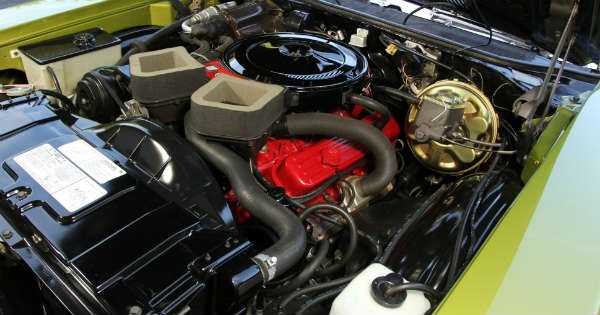That`s the question posed by a new quiz from Scrap Car Network, an ethical car recycling company. For many people, the answer is apparently -- not all that well! In fact, Scrap Car Network found that just 36% of respondents are able to correctly tell their crankshafts from their carburetors.
Indeed, in many cases it`s almost certainly safer, since modern cars aren`t generally designed to allow for tinkering or basic repairs. So, you may be wondering, how well do you really know what`s under the bonnet of your car -- and more to the point, does it matter if you don`t?

It`s a good demonstration of how many modern drivers lack the confidence, knowledge or experience to carry out repairs on our their cars. Now, that`s not necessarily a bad thing.
Why is DIY car maintenance on the decline?
Now, there are all sorts of reasons why modern drivers don`t feel as comfortable tackling issues with their cars, but they centre on several key factors -- greater complexity in their construction, the emerging new technologies set to change them further, and steadily tightening legislation. We`ll focus on each in turn.
Cars are more complex
While cars used to be purely mechanical, almost all modern vehicles come fitted with an Engine Control Unit, or ECU. This is essentially the car`s brain -- it monitors, adjusts and controls elements like the fuel/air mixture in the engine, oil levels, emissions volumes, and more.
In order to make any substantial changes under the bonnet, amateur mechanics and DIY drivers must have at least a passing understanding of the ECU, and how their work might affect it positively or negatively.
The introduction of the ECU and similar electrical elements have also meant that modern cars can suffer from something their predecessors never did -- namely, software bugs. For example, a car can be mechanically flawless, but the ECU may be limiting its engine power due to a fault in its code.
This can leave plenty of amateur mechanics stumped, and those who do attempt the repairs anyway can find them complicated in unpredictable ways. (Ultimately, many of these end up needing professional intervention anyway!)
New technologies are evolving rapidly
Now, ECUs and software problems pose a significant barrier in themselves, but amateur mechanics are increasingly finding that familiarity with these elements is becoming the bare basic requirement. Machine learning innovations are set to steadily change the way we drive, with features like autonomous braking and mandatory speed limiters becoming standard inclusions on every car.
That`s not to mention the upcoming rollout of electric cars and self-driving cars -- which may end up leaving some hobbyist mechanics and enterprising drivers in the dust entirely.
New legislation is becoming stricter than ever
Along with the technology, the law is evolving to keep up, too. For starters, drivers and mechanics need to be aware of today`s stricter emissions standards -- as certain alterations or modifications can alter a car`s emissions levels, potentially rendering it technically illegal on public roads.
Similarly, new laws could limit the ability of drivers or mechanics to modify new technologies on their car, such as speed limiters. In the case of the AI in self-driving cars, it`s likely that drivers will be forbidden from experimenting with it at all -- or at least, very strict conditions are likely to apply.
So is this the end for DIY car maintenance?
Not necessarily! While it may be more difficult to undertake certain kinds of repairs, there are plenty that are still within the ability of everyday drivers and hobbyist mechanics (and likely will be for quite some time yet).
Replacing your spark plugs
Spark plugs were one of the components featured in Scrap Car Network`s quiz -- and encouragingly, a lot of respondents correctly identified them. Their job is to ignite the fuel/air mixture in your engine, kickstarting the chemical reaction that propels your car along the road.
However, old or damaged spark plugs can sometimes fail to ignite the mixture correctly, which leads to misfiring. The good news is that locating and replacing them is a pretty simple job -- they`re under the bonnet with your engine. (But if you`ve recently been driving, make sure to let it cool off first!)
Changing the fluids
This is one of the easiest bits of car maintenance you can do, so much so that it doesn`t even really fit the definition of a repair. Your wiper fluid, engine oil and similar fluids all have their own reservoirs (usually under your bonnet), so refilling them is generally just a matter of uncapping one and filling it with the right liquid. Make sure it really is the right fluid though -- otherwise a simple bit of maintenance might become very expensive in the blink of an eye.
On the other hand, large-scale or particularly involved repairs -- such as changing the clutch -- are tasks that are probably best left to the professionals.
If you`ve taken Scrap Car Network`s quiz yourself, it`s worth bearing in mind that even if you`ve correctly identified an alternator, that doesn`t necessarily make you qualified to work on it. Of all the skills and knowledge a mechanic can have in his repertoire, perhaps the most vital one is simply knowing his limits!

